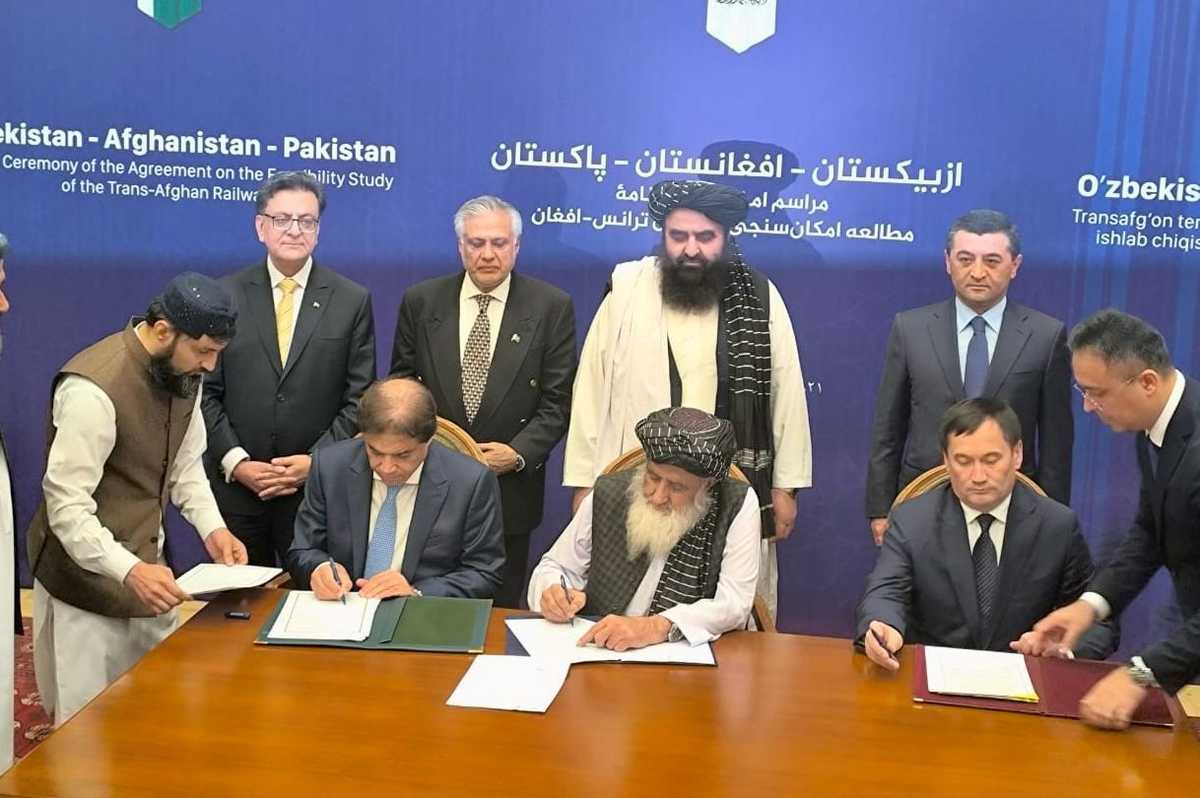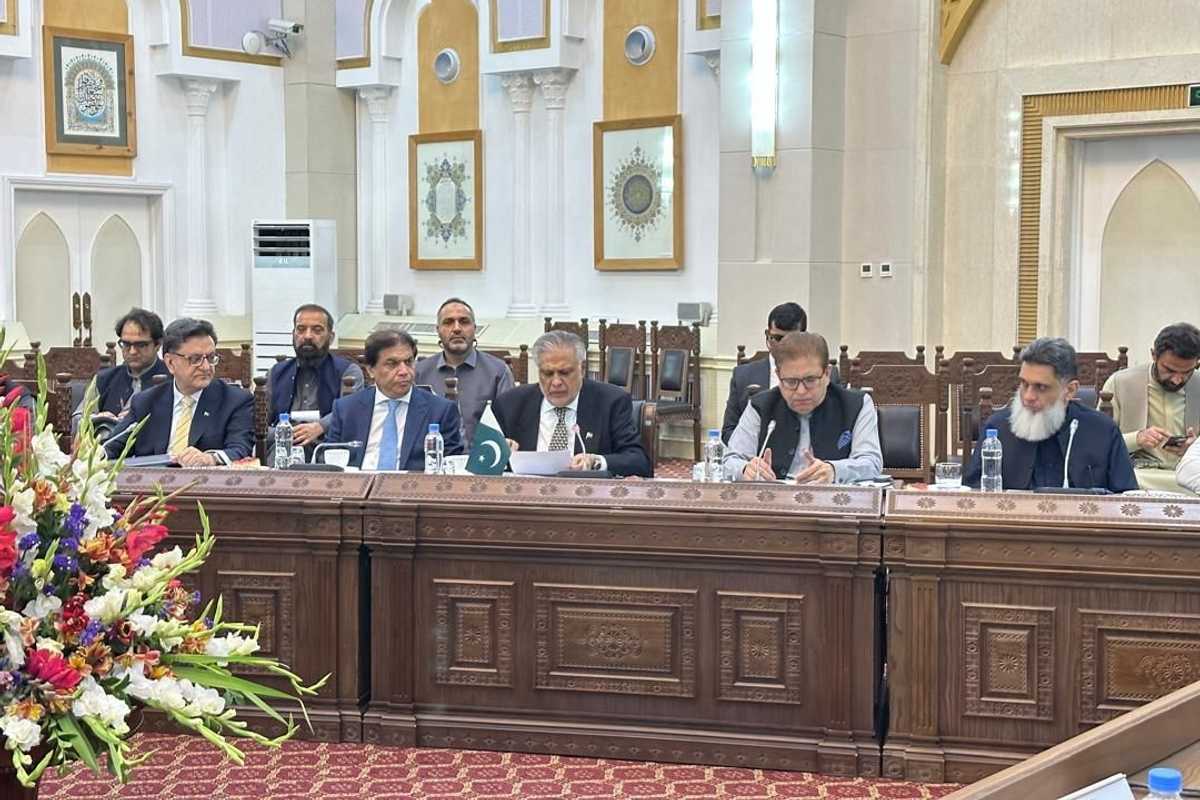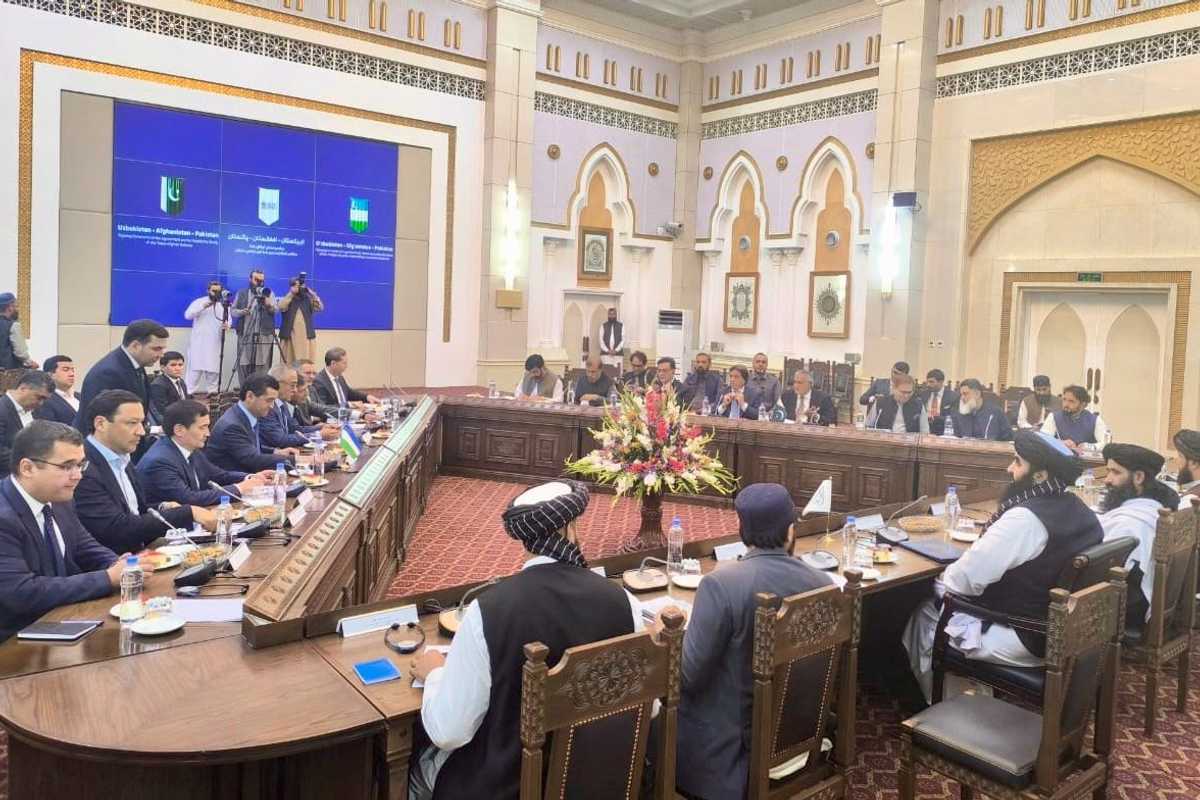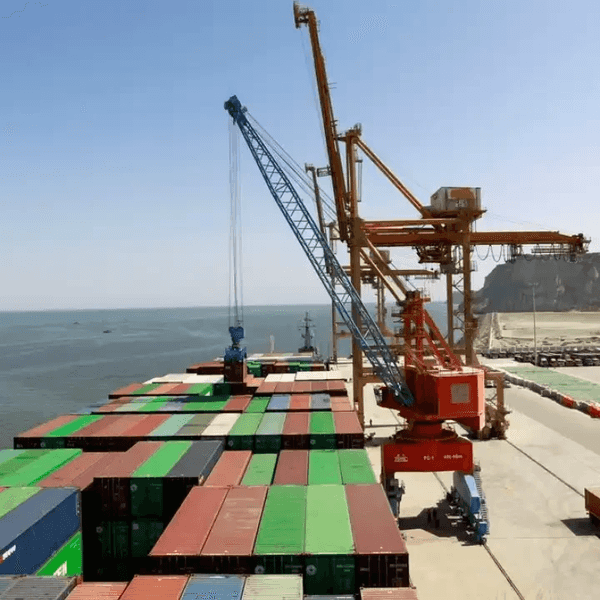Pakistan, Afghanistan, Uzbekistan sign key rail study deal to boost regional trade
Proposed railway, backed by China under its Belt and Road Initiative, could reshape trade across South and Central Asia

Asma Kundi
Producer, Islamabad
Asma Kundi is a multimedia broadcast journalist with an experience of almost 15 years. Served national and international media industry as reporter, producer and news editor.

Agreement signing ceremony following the trilateral meeting between delegations of Pakistan, Afghanistan, and Uzbekistan in Kabul.
Pakistan's FO
In a rare high-level gathering in Kabul, Pakistan’s Foreign Minister Ishaq Dar joined his Afghan and Uzbek counterparts on Thursday to sign a trilateral agreement for a joint feasibility study of the long-envisioned Uzbekistan-Afghanistan-Pakistan (UAP) railway -- a project that could transform trade and connectivity across South and Central Asia.
The signing followed formal discussions among the three nations, with the meeting reaffirming their shared commitment to fostering regional integration, economic development, and peace. The agreement underscores a broader push to unlock the economic potential of a region historically marked by conflict, isolation, and underinvestment.
Far from just another diplomatic visit, Dar’s trip signals Islamabad’s renewed focus on establishing direct trade routes to Central Asia. If completed, the railway would cut through northern Afghanistan to connect Uzbekistan’s rail network with Pakistan’s -- offering landlocked Central Asian states a shorter, more cost-effective pathway to global markets by bypassing traditional trade corridors through Iran and Russia.
Though not directly involved in the agreement, China looms large in the background. Beijing has shown interest in financing associated infrastructure under its Belt and Road Initiative (BRI), its global strategy to build trade networks and extend economic influence.
China is already a key investor in Pakistan’s infrastructure through the China-Pakistan Economic Corridor (CPEC), a BRI flagship featuring roads, railways, and energy projects linking western China to Pakistan’s deep-sea port at Gwadar.
Beijing is also backing a proposed Peshawar-Kabul highway, which would complement the rail link and form part of a wider overland corridor stretching from East Asia to Europe -- a vision that now appears one step closer to reality.
Economic logic clear, risks high
Analysts say the economic logic for the three-nation railway is clear, though risks remain high. Hassan Daud, a former director of CPEC, said the railway and Pakistan’s long-delayed Main Line-1 (ML-1) upgrade could jointly transform the country into a vital trade hub.

ML-1 refers to the planned expansion and reconstruction of Pakistan’s main north-south railway line, connecting Karachi to Peshawar. The project has faced repeated delays due to financing and administrative challenges.
“The opportunities are enormous,” Daud told Nukta. “But our governance model must evolve. You can’t run 21st-century trade routes on a 20th-century railway bureaucracy.”
Others argue that bureaucratic hurdles may pose a greater obstacle than regional instability.
“We keep talking about terror threats, but the real threat is red tape,” said Shakil Ramay, an Islamabad-based policy analyst. “If Pakistan wants to be taken seriously as a trade corridor, we need to fix our own house first – customs, regulations, and decision-making need urgent overhaul.”
Fragile road to Taliban recognition
Afghanistan’s role in the project is both promising and uncertain. The Taliban-led government, which remains unrecognized by most of the international community, is eager to take part in regional development efforts to improve its global standing.

“Today’s agreement reflects a consensus, however fragile, that Afghanistan can no longer be treated as a black hole in regional planning,” Ramay said. “If trade brings stability, then it’s a win for everyone.”
According to Pakistan’s Foreign Office, Dar also held talks with Afghanistan’s interim Foreign Minister Amir Khan Muttaqi on broader bilateral and regional issues, including cross-border trade and the role of external actors such as India and Iran.
While skepticism remains, Thursday’s signing represents a shift from long-standing ambition to early implementation. The three-nation railway project, once an abstract vision, has now entered a new phase.







Comments
See what people are discussing